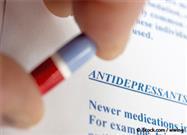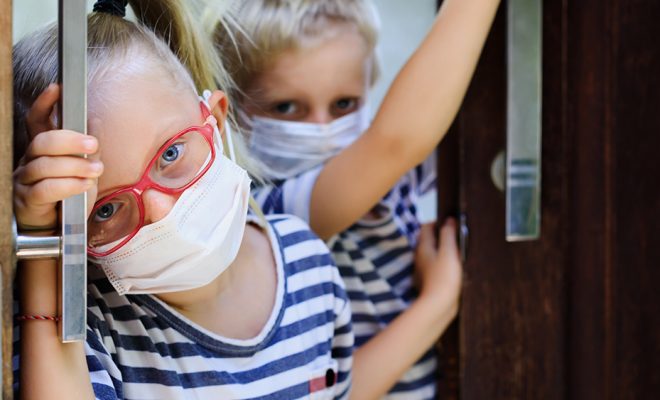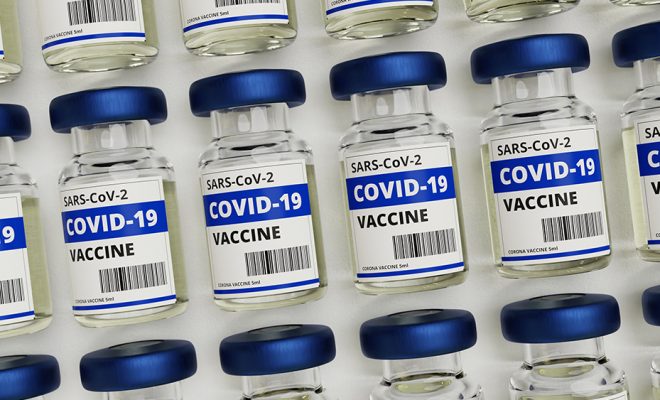Increasing Concern Over Antidepressant Overprescription

The useof antidepressants is rarely more controversial than when they’represcribed to children and adolescents.
In 2004, the U.S. Food and Drug Administration (FDA) issued ablack-box warning on antidepressants, indicating that they were associated withan increased risk of suicidal thinking and behavior in young people.
In 2007, the FDA directed manufacturers to update thewarning to include increased risks of suicidal thinking and behavior, known assuicidality, in young adults aged 18 to 24 during initial treatment (generallythe first one to two months).1
For about two years following the initial 2004warning, substantial reductions in antidepressant use were observed amongyouth, but it was unknown whether those reductions had continued.
Now, a new study published in EuropeanNeuropsychopharmacology shows that not only did antidepressant use continueafter the FDA warnings, but it also markedly increased.2
Antidepressant Use Among YouthIncreased Significantly From 2005 to 2012
Thestudy revealed significant increases in antidepressant prescriptions to youthin five Western countries included in the study. In Denmark, for instance,there was a 60 percent increase in youth antidepressant prescriptions from 2005to 2012.
The rate increased 54 percent in the U.K., 49 percentin Germany, 26 percent in the U.S. and 17 percent in the Netherlands during thesame period.3
In response to the study, the World HealthOrganization (WHO) called the increase a “matter of concern.” Dr. ShekharSaxena, WHO director of Mental Health, told BBC News:4
“Anti-depressantuse amongst young people is and has been a matter of concern because of tworeasons … One, are more people being prescribed anti-depressants withoutsufficient reason? And second, can anti-depressants do any major harm?”
Saxena also noted concerns about off-label usage ofthe drugs, as many antidepressants have not been tested in people under the ageof 18. He continued:5
“These aremedicines which have not been tried amongst young people, have no justificationfor being used widely in young people …
There are legalregulations and professional guidelines and off-label use of drugs many timescrosses both of them. That’s something the World Health Organization is veryconcerned about.
… There is no reasonfor many years of prescriptions being continuously given … Adolescents andyoung people are in the phase of development they develop out of everything,including their own depression.”
National Institute for Health and Care Excellence (NICE)clinical guidelines, for instance, state antidepressants should not be offeredas a first-line treatment for symptoms of mild depression in children. And evenwhen they’re prescribed for more serious cases, it’s supposed to be along withpsychological therapy.
Fatal Anxiety Drug Overdoseson the Rise
Therise of antidepressant use among children mirrors another concerning rise inpsychotropic drugs, this time for anxiety drugs called benzodiazepines (brand names include Xanax,Ativan and Valium).
Prescriptions for such drugs tripled from 1996 to 2013, butthis doesn’t fully account for the uptick in overdoses, which quadrupled during that time period.
Researchersfrom the Albert Einstein College of Medicine in New York useddata from the Medical Expenditure Panel Survey and multiple-cause-of-death datafrom the U.S. Centers for Disease Control and Prevention (CDC) to describetrends in benzodiazepine prescriptions and overdose deaths.
They found that the number of U.S.prescriptions for the drugs rose from 4.1 percent in 1996 to 5.6 percent in2013 — a 37 percent increase.
Further,the rate of overdose deaths increased from 0.58 per 100,000 adults at the startof the study to about 3 per 100,000 adults at the end, which represented a morethan 500 percent increase.
Asfor why the rate of overdose deaths rose faster than the rate of prescriptions,Dr. Chinazo Cunningham, one of the study’s authors, toldSTAT News, “Our guess is that people are using these prescriptions in a riskierway.”6
The number of pills prescribed to each adult increased overthe study period, for instance, which suggests Americans may be taking higherdoses or taking the drugs for longer periods, both of which increase the riskof overdose.
Combiningthe drugs, which act as sedatives and are often prescribed not only for anxietybut also for insomnia, with alcohol is also risky, as is using the drugs alongwith opioids.
Even Children Are Overdosingon Anxiety Drugs
About 9,500 children younger than 6 are hospitalized eachyear after ingesting family members’ medications.
Among them, three-quarters are between the ages of 1and 2. Likely echoing the sharp rise in adults’ use of opioids andbenzodiazepines, both opioid painkillers and benzos topped the list ofmedications most often responsible for young children’s hospitalizations. 7 According to the study:8
“Emergency department visitsand subsequent hospitalizations of young children after unsupervised ingestionsof prescription medications are increasing despite widespread use ofchild-resistant packaging and caregiver education efforts …
Opioids (17.6 percent) andbenzodiazepines (10.1 percent) were the most commonly implicated medicationclasses.”
Yet, not allof the children consuming these powerful, mind-altering drugs are doing soaccidentally. Millions of children are taking such drugs, often before they’reeven old enough to attend school.
In the U.S.alone, nearly 5 million children have been labeled with some type of seriousmental disorder.9 In any given year, 20 percent of children will be diagnosed with a mentalillness.
The mostcommon diagnosis for kids ages 3 to 17 is ADHD (attention deficit hyperactivitydisorder), followed by behavioral problems, anxiety and depression,10 and many of these children are being prescribed powerful and potentiallydangerous psychiatric drugs as a result.
The long-term effectsof psychotropic drugs on children are largely unknown, while serious short-termside effects are unfortunately common and include seizures, suicidal ideation,violent behavior and more.
How Are Children DiagnosedWith a Mental Illness?
This video may not be available in all countries.
Thediagnosis of mental illness in children is far from an exact science. Modern psychiatryhas expanded its reach to the point that even the most normal of emotions andmental states are now labeled as one “disorder” or another.
In manycases, a child is labeled with a “disorder” such as ADHD based onsubjective observations of behaviors that nearly all children exhibit at sometime or another, such as excessive fidgeting or becoming angry after losing agame.
Ironically,many of these behaviors are a result of forcing children into unhealthypatterns like sitting in a chair at their school desk for six to eight hours aday.
Journalist Louis Theroux, in the BBC documentary “America’sMedicated Kids” (above), identified a fine line between ordinary “bad behavior”and pathology and posed the question of whether the latest drugs are taking theplace of “good old-fashioned parenting.”11
What happensto children when they are medicated at a very young age, during key formativeyears? Do they grow up never knowing who they really are? What passions mightthey have developed were it not for the drug’s influence? Psychotropicagents can influence a child’s brain development, and chronic drug exposureduring sensitive periods can produce alterations to a child’s nervous systemthat have unpredictable and potentially harmful effects.
Behavioral problems in children(and also many mental challenges in adults) — including what might appear to beserious mental disorders — are frequently related to improper diet, emotionalupset and exposure to toxins. These underlying issues should be resolved beforesuppressing symptoms with potentially dangerous medications.
Do Antidepressants Even Work for MostPeople?
Antidepressants are the most commonly prescribed classof medication other than antibiotics, taken by more than 1 in 10 Americans (and 1 in4 among women aged 50to 64).12 Many assume that such pills are the best availabletreatment for symptoms of depression, but in fact the difference betweenantidepressants and placebo pills is very small — and both are ineffective formost depressed patients.13
Ifyou or your child is diagnosed with depression, be aware that there are manytreatment options available, including cognitive behavioral therapy (CBT). In asystematic review of 11 studies, nostatistically significant difference in effectiveness was found betweensecond-generation antidepressants and CBT.14
Further, in a meta-analysis published in PLOS Medicine, onlythe most severely depressed showed any response to antidepressants at all and that response was quiteminimal.15 This lack of effectiveness must be taken intoconsideration along with the drugs’ side effects — of which there are many.
Serious Side Effects Demand ThatAntidepressants Be Used With Caution
Antidepressantscalled serotonin reuptake inhibitors (SSRIs) may leave you with a newset of mental challenges, as they’ve been linked to a slightly increased riskof mania or bipolar disorder.16 In addition, researchsuggests taking an SSRI may double your risk of bone fractures.17
This is because serotonin is also involved in the physiologyof bone. If you alter serotonin levels with a drug, it can result in low bonedensity, boosting fracture risk. A large studyof post-menopausal women also found that those taking tricyclic antidepressantsor SSRIs were 45 percent more likely to suffer a fatal stroke.18
Meanwhile,overall death rates were 32 percent higher in women on the drugs, while otherresearch linked antidepressant use to thicker arteries, which could contributeto your risk of heart disease and stroke.19 Amongthe most concerning side effects, however, especially to society as a whole,are suicidal thoughts and violent behavior, which are well known side effects,particularly in youth.
At SSRIStories.org, you can browse through a collection ofmore than 6,000 stories in which prescription drugs, primarily SSRIs, werepotentially linked to serious side effects including violent behavior.Categories include murder-suicide, postpartum reactions, road rage, school andother mass shootings, workplace violence and more.
Try This Before Mind-Altering Drugs for Depression or Anxiety
If you are experiencing severe depression oranxiety, please seek help from a professional. For milder cases, and inaddition to professional treatment for severe cases, the place to start is toreturn balance — to your body and yourlife. If you’re currently taking antidepressants and wish to stop, you shouldwean off them gradually under the care of a knowledgeable health care provider.
Abruptwithdrawal from these drugs can lead to severe psychiatric or physicalproblems. You have nothingto lose, and everything to gain, by applying lifestyle modifications beforetrying medication, especially in children. You may be surprised by how muchsuch changes lessen symptoms naturally.
In addition to the creation of newneurons, including those that release the calming neurotransmitter GABA,exercise boosts levels of potent brain chemicals like serotonin, dopamine, andnorepinephrine, which may help buffer some of the effectsof stress.
Many avid exercisers also feel asense of euphoria after a workout, sometimes known as the “runner’shigh.” It can be quite addictive, in a good way, once you experience justhow good it feelsto get your heart rate up and your body moving.
The Emotional Freedom Techniques (EFT)
EFT canbe very effective by helping you to actually reprogram your body’s reactions to the unavoidable stressors of everyday life. Thisincludes both real and imagined stressors, which can be significant sources of anxiety.In the following video, EFT therapist Julie Schiffmandiscusses EFT for depression relief.
Please keep in mind that whileanyone can learn to do EFT at home, self-treatment for serious issues like persistentanxiety or depression is dangerous and NOT recommended, and you should consultwith an EFT professional to get the relief you need.
Optimize Your Gut Flora
Yourgut and brain actually work in tandem, each influencing the other. This is whyyour intestinal health can have such a profound influence on your mental healthand vice versa. It’s also the reason why your diet is so closely linked to yourmental health.
Priorresearch has shown that the probiotic Lactobacillusrhamnosus had a marked effect on GABA levels in certain brainregions and lowered the stress-induced hormone corticosterone, resulting inreduced anxiety- and depression-related behavior.20 The probiotic known as Bifidobacterium longum NCC3001 has also been shown to normalize anxiety-like behavior in micewith infectious colitis.21
Sooptimizing your gut flora with beneficial bacteria is a highly useful strategy.This is done by eliminating sugars and processed foods and eating plenty ofnon-starchy vegetables, avoiding processed vegetable oils, and using healthyfats. Additionally, eatingplenty of fermented vegetables or taking a high-potency probiotic would beuseful to reestablish a healthy gut flora.
Omega-3 Fats
Your diet should include ahigh-quality source of animal-based omega-3 fats, like krilloil. The omega-3 fats EPA and DHA play an important role in your emotionalwell-being, and research has shown a dramatic 20 percent reduction in anxietyamong med students taking omega-3s.22
Dr. Andrew Stoll,a Harvard psychiatrist, was one of the early leaders in compiling the evidencesupporting the use of animal based omega-3 fats for the treatment ofdepression. He wrote an excellent book that details his experience in this areacalled “The Omega-3 Connection.”
Vitamin D
Optimize your vitaminD levels, ideally through regular sun exposure. Vitamin D isvery important for your mood. In one study, people with the lowest levels ofvitamin D were found to be 11 times more prone to depression than those who hadnormal levels.23
The best way to get vitamin D isthrough sun exposure. A vitamin D3 supplement can be used if these aren’tpossible, but you’ll need to monitor your levels regularly.
Lower Your Intake of Sugar and Processed Foods
In addition to being high in sugarand grains, processed foods also contain a variety of additives that canaffect your brain function and mental state, such as monosodium glutamate (MSG)and artificial sweeteners. There’s a great book on this subject, “The Sugar Blues,” written by WilliamDufty more than 30 years ago, that delves into the topic of sugar and mentalhealth in great detail.
Sleep
Get adequate amounts of sleep. Youcan have the best diet and exercise program possible, but if you aren’tsleeping well you can easily become depressed. Sleep and depression are sointimately linked that a sleep disorder is actually part of the definition ofthe symptom complex that gives the label depression.
Anxietydrugs are also often prescribed for sleep troubles. I suggest first reading my “Guide to a Good Night’s Sleep” on improving your sleep. Smalladjustments to your daily routine and sleeping area can go a long way to ensureuninterrupted, restful sleep (which may further help with anxiety symptoms aswell).
Get My Best Health Tips for FREE
If you haven’t already, here’s your chance to subscribe to the world’s most popular newsletter! My FREE newsletter is instrumental in changing the lives of many people across the world. If you want to take control of your health then you won’t want to miss out on this opportunity.
When you subscribe I guarantee:
- You’ll be the first to hear about fast-breaking health news and hard-to-find tips for improving your emotional, physical, and spiritual well-being
- You’ll save money because I’m committed to helping you stay healthy, so you won’t need expensive prescription drugs or doctor’s visits so often
- You’ll get straight talk from me in plain English that shatters all the myths and misconceptions about health, aging, and fitness
- You’ll gain unlimited access to free eBooks that can have a profound impact on your health








